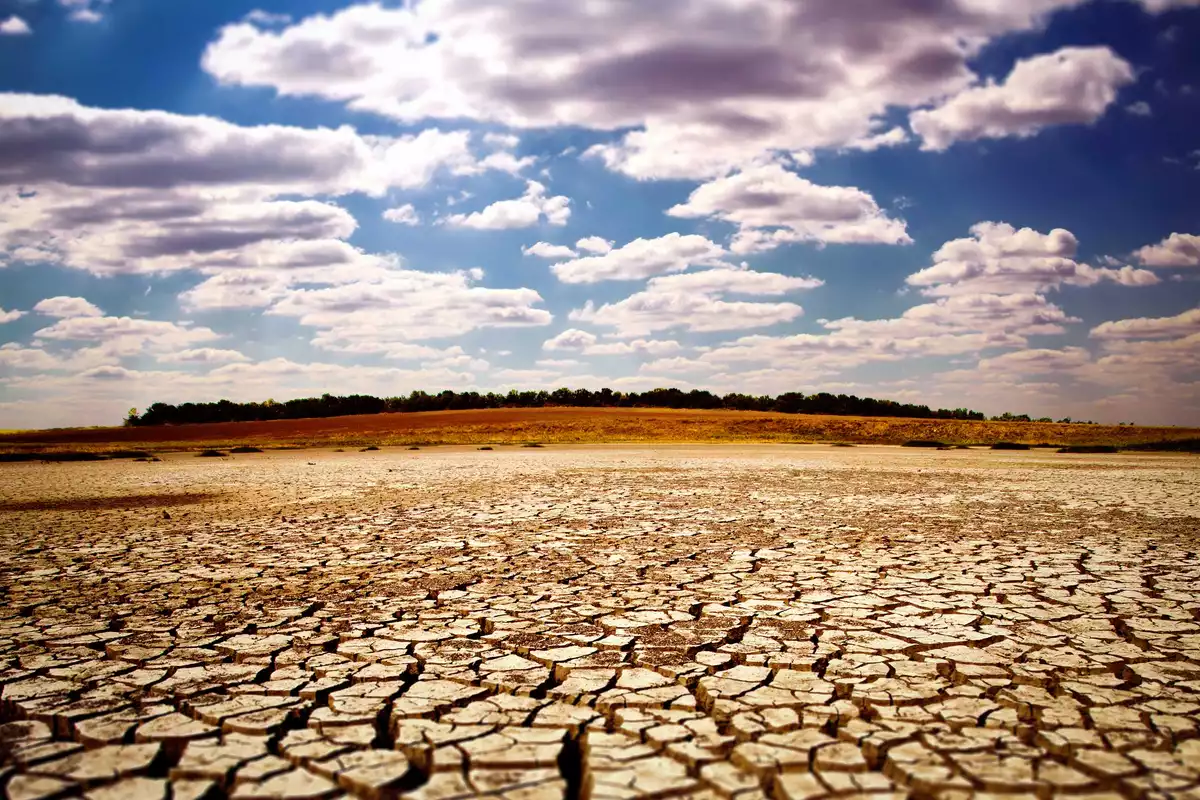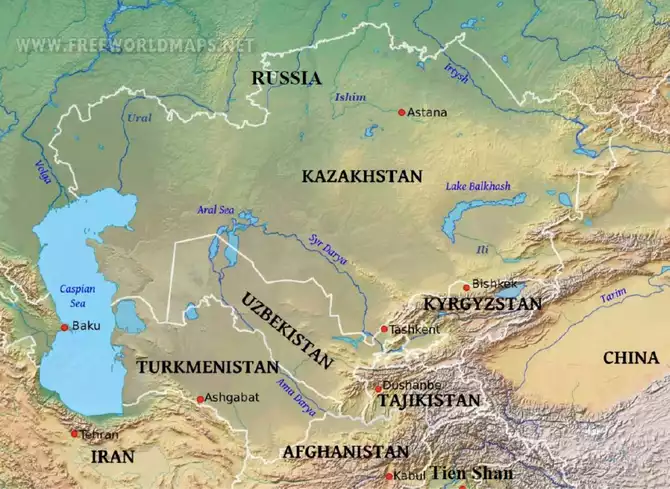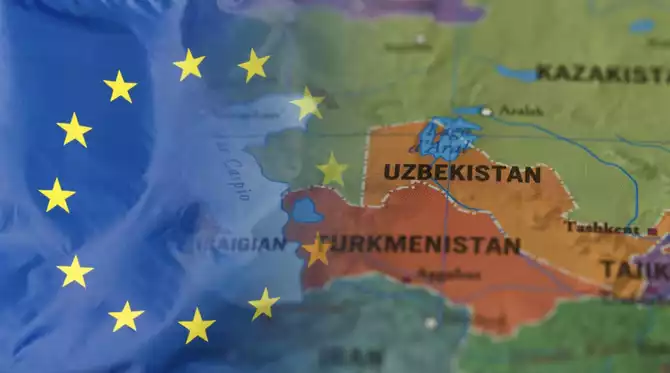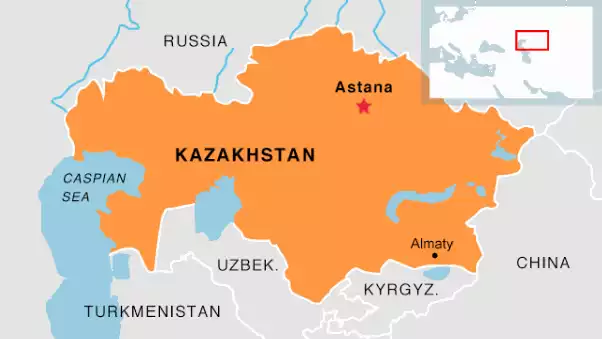
Photo credit: eurasian-research.org
Water may well be the defining issue of the 21st century - not oil, not gas, and not technology. In Central Asia, it already is. On April 9, 2025, Kazakh President Kassym-Jomart Tokayev signed into law a new Water Code and three supporting legal acts. For the first time in Kazakhstan’s legislative history, the concept of “water security” was formally defined. This goes far beyond semantics - it signals a comprehensive national strategy aimed at protecting the population and the economy from water scarcity and pollution, while defending Kazakhstan’s rights and interests in managing transboundary water resources.
The legislation also tightens state control and oversight over water use and protection, further reflecting the seriousness of the issue. This marks a significant moment not only for Kazakhstan but for all of Central Asia, where shared rivers, rapid climate change, and unsustainable water use threaten to spiral into future crises. Tokayev himself raised this concern at the 78th session of the UN General Assembly in 2023, stressing that "water shortages pose serious economic and other challenges in the basins of Central Asia’s transboundary rivers."

Photo credit: freeworldmaps.net
That same year, Kazakhstan established the Ministry of Water Resources and Irrigation - a move that, in hindsight, now looks prescient. The context is stark: only 2.8% of Kazakhstan’s territory is covered by water. Two-thirds of the country consists of arid land where access to water is extremely limited. And less than 15% of irrigated land uses modern water-saving technologies. This makes Kazakhstan heavily reliant on water inflows from neighboring countries.
This vulnerability has prompted the government to push for a “national campaign to promote water consumption culture,” recognizing that the long-term development of the agro-industrial sector - one of Kazakhstan’s economic pillars - is directly tied to water availability.
During parliamentary discussions of the draft Water Code, MP Pavel Kazantsev offered a blunt assessment. Agriculture accounts for 60% of all water usage, he said, and according to satellite monitoring, in some areas, up to 80% of water is lost to theft or black-market trading. In Kyzylorda Region, massive wetlands near irrigation canals point to decades-old leakages. Elsewhere, local actors have reportedly used bulldozers to divert small rivers toward their own lands, leaving communities and ecosystems downstream dry. “This is no longer just about waste or inefficiency,” Kazantsev warned - “this is sabotage of the national interest.”

Source: asia.nikkei.com
Kazakhstan is not alone in its challenges. A recent international climate forum, held within the framework of the Central Asia-EU Summit and attended by regional heads of state and senior European officials, underscored how deep the region’s water crisis runs. Kazakhstan’s Minister of Water Resources and Irrigation, Nurzhan Nurzhigitov, reported that from October 2024 to April 1, 2025, over 12.6 billion cubic meters of water entered Kazakhstan’s Shardara Reservoir from Uzbekistan - 1.7 billion cubic meters more than forecasted. Similar surpluses were recorded in the North Aral Sea. Nurzhigitov stressed the importance of joint efforts to manage transboundary water flows and introduce advanced technologies to ensure long-term regional water security.
In a further step toward modernization, Kazakhstan joined the One Water Vision coalition in late 2024 - an international alliance aimed at tackling the global water crisis through integrated water resource management. This move aligns with Kazakhstan’s call for technological innovation and stricter regulation to protect water sources from industrial, chemical, agricultural, and household contamination.
In parallel, the Kazakh government is working with the Islamic Development Bank to implement a sweeping new initiative: the Climate-Resilient Water Resources Development Project. This project will include the construction of four new reservoirs, rehabilitation of four existing ones, and major repairs to 115 canals, including measures to bolster the Astana Reservoir. Moreover, the Islamic Development Bank will fund a grant for the Kazakh Scientific Research Institute of Water Management to study the country’s river and water basin systems - a move that could inform future policy across the region.

Source: Kz.Ru
These are not small efforts. They are part of a broader strategy to address a crisis that threatens to destabilize not just Kazakhstan, but the entire region. According to World Bank data, over 37 million people in Central Asia currently live in water-scarce areas - and the situation is only getting worse. Analysts warn that the water deficit is intensifying year after year.
But water scarcity is not merely a development issue. It’s also emerging as a national security risk. In 2024, Aidos Sarym, Secretary of the Kazakh Parliament's Committee on International Affairs, Defense, and Security, issued a stark warning: “For the first time, we have come to understand that the threat of external aggression is no longer hypothetical.” Sarym added, “It may not even stem from imperial ambitions. Many reports suggest that future conflicts in our region will be over water.”
Indeed, the logic is clear. Where access to water is weaponized or monopolized, conflict follows. That’s why Kazakhstan’s legislative and policy changes must be seen not just as reactive but as a proactive blueprint for the region.
Encouragingly, Central Asia’s governments appear to be reaching the same conclusion. Over the past three years, the region’s five countries have signed four new bilateral agreements on river water management. This level of cooperation is unprecedented - and essential.
The lesson is simple: no single country can solve the region’s water crisis alone. Only true collective action - grounded in science, diplomacy, and long-term investment - will enable Central Asia to overcome what could become the most destabilizing force of this century.
Kazakhstan has taken the first step. The rest of the region must follow - before the wells run dry.
Share on social media